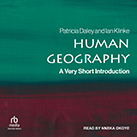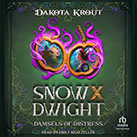
Lord Dunsany
Lord Dunsany was born in London in 1878, the scion of an Anglo-Irish family that could trace its ancestry to the twelfth century. In 1905 he self-published The Gods of Pegana, and its critical and popular success impelled the publication of numerous other collections of short stories, including A Dreamer's Tales, The Book of Wonder, and The Last Book of Wonder. Dunsany also distinguished himself as a dramatist, and his early plays—collected in Five Plays and Plays of Gods and Men—were successful in Ireland, England, and the United States. Dunsany was seriously injured during the Dublin riots of 1916, and he also saw action in World War I as a member of the Coldstream Guards.
In the 1920s Dunsany began writing novels, among them The King of Elfland's Daughter and The Blessing of Pan. He also wrote many tales of the loquacious clubman Joseph Jorkens, eventually collected in five volumes. His later plays include If, Plays of Near and Far, Seven Modern Comedies, and Plays for Earth and Air. By the 1930s, encouraged by W. B. Yeats and others to write about his native Ireland, he produced The Curse of the Wise Woman, The Story of Mona Sheehy, and other novels. His later tales were gathered in The Man Who Ate the Phoenix and The Little Tales of Smethers, but many works remain uncollected. Lord Dunsany died at Dunsany Castle in County Meath, Ireland, in 1957. He is recognized as a leading figure in the development of modern fantasy literature, influencing such writers as J. R. R. Tolkien, H. P. Lovecraft, and Ursula K. Le Guin.

















